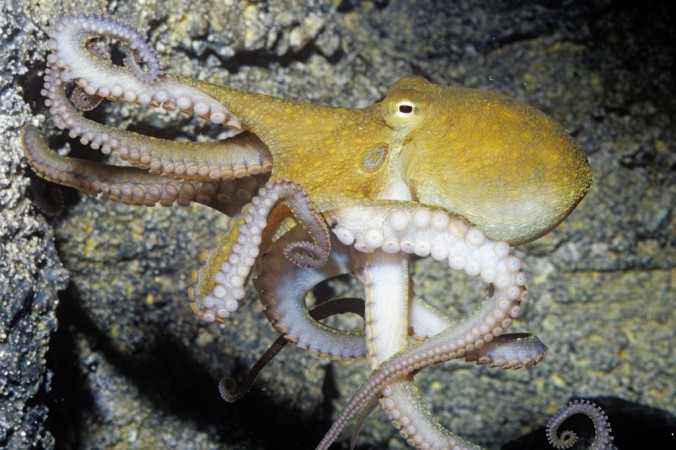Thanks to JoAnna Klein a regular contributor for The New York Times Trilobites feature, for this:
On Ecstasy, Octopuses Reached Out for a Hug
By dosing the tentacled creatures with MDMA, researchers found they share parts of an ancient messaging system involved in social behaviors with humans.
Octopuses are smart. They open jars, steal fish and high-five each other.
Though interactive, they’re generally asocial, and temperamental, with unique behavior patterns, like those shown by Otto, who caused blackouts at a German aquarium and Inky, who famously escaped a tank in New Zealand.They learn through experience and observation, forming lasting memories with brain-like bundles of hundreds of millions of neurons in each arm and a centralized bundle in the middle.
A desire to understand the evolutionary underpinnings of this brain power led scientists to give octopuses ecstasy. Yes ecstasy — molly, E, MDMA, the party drug, which in humans reduces fear and inhibition, induces feelings of empathy, distorts time and helps people dance to electronic music all night.
And under the influence of MDMA, the researchers report in a paper published Thursday in Current Biology, asocial octopuses seemed to become more social.
“Even though octopuses look like they come from outer space, they’re actually not that different from us,” said Gül Dölen, a neuroscientist at Johns Hopkins University School of Medicine who led the study with Eric Edsinger, an octopus researcher at Marine Biological Laboratory in Woods Hole.
They also found that humans and octopuses share parts of an ancient messaging system involved in social behaviors, one enhanced by the presence of MDMA in both animals. These shared lineages may have been conserved to reduce fear and enable social behaviors. And although preliminary, the authors think octopuses present a promising model for studying MDMA’s effects on the human brain, treating PTSD and better understanding how the brain evolved to conjure social behaviors.
MDMA helps release, among other chemicals, serotonin. That ancient molecule is involved in regulating mood and social behaviors in invertebrates like locusts as well as vertebrates, like fish, insects, dogs and humans.
For Dr. Dölen, who is interested in evolution of social behavior, the octopus offered an interesting test of MDMA and serotonin, because it is separated by 500 million years of evolution from humans, but also has complex behavior.
Octopuses suspend their aggression for a few minutes to mate, perhaps accessing an otherwise switched-off neural signaling system — potentially similar to the one that helps humans behave socially, she reasoned. And any similarities in octopus and human genetic code related to this system could help her understand how the brain — down to its tiniest bits — evolved to govern social behaviors…
Read the whole article here.
